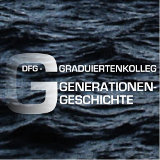Abstract Franka Maubach
Helmut Schelsky coined the term “skeptical generation” to characterize one of the first and influential political generations of the Federal Republic. According to the initial narrative of a generational community, those born old enough to experience the war as last soldiers, anti-aircraft personnel and in the Hitler-Youth have come to be identified as the “betrayed generation” – they were too young to become perpetrators. Indoctrinated since early childhood, this generation is said to have drawn radical conclusions from the experience of total defeat in 1945 (thus the label “1945ers”): after having witnessed the horrors of war and the collapse of the Nazi regime in 1945 as children and teenagers and after having realized its criminal character, they became resistant against any form of ideological thinking, “skeptics,” who felt an obligation to join in German’s democratic reconstruction. Because this generation embarked upon a pragmatic reconstruction of Germany and kept a lifelong distance vis-à-vis ideologies of any kind it is said to have laid the foundation for the successful creation of a democratic Germany. Paradoxically, it was the alleged political abstinence of this cohort that turned it into a political generation.
It is somewhat astounding that these observations have not yet been systematically juxtaposed with the story of the parallel East German generation (the „construction generation“ or „generation of (re)construction“). This project argues that extending the view on the East German equivalent can productively irritate – even question – the conventional “West German” concept of a “skeptical generation” because many East Germans reacted to the devastation caused by the National Socialist ideology by opting against political abstinence and wholeheartedly embracing a new ideological worldview – antifascist communism. Thus, from an all-German perspective, the “1945er”-generation underwent a peculiar and challenging double socialization: they shared the experience of National Socialism but grew apart by – at first sight – diametrically opposing personal and intellectual itineraries in divided postwar Germany.
The project will investigate those parting itineraries by looking at a sample of prominent East and West German intellectuals and comparatively analyze their efforts to come to terms with the Nazi past and to shape the contemporary political landscape of their respective countries. A special focus rests on the diverging or comparable “thought styles” (“Denkstil”, Ludwik Fleck) these intellectuals developed along the way. One hypothesis is that beneath the surface of generational self-stylizations there flourished a plethora of very different modes of relating to and engaging in politics, modes that even cross-cut the inner-German Cold War-frontier.

